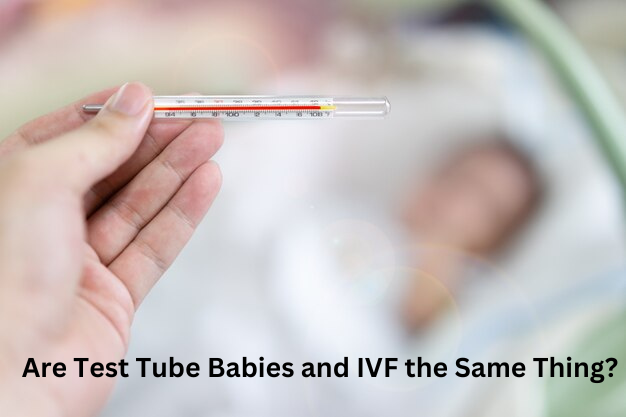Are Test Tube Babies and IVF the Same Thing?
When it comes to assisted reproductive technologies, terms like "test tube babies" and "IVF" often arise. Many people wonder if they are the same thing. The simple answer is yes, but there's more to understand about these terms and the process they describe. At New World Fertility Centre in Delhi, we aim to clarify these concepts to help you make informed decisions about your fertility treatment options.
What is IVF?
In Vitro Fertilization (IVF) is a process where an egg and sperm are combined outside the body, in a laboratory dish, to create an embryo. This embryo is then transferred to the woman's uterus with the hope of achieving a successful pregnancy. The term "in vitro" is Latin for "in glass," referring to the laboratory dishes used in the process.
What is a Test Tube Baby?
The term "test tube baby" is a colloquial expression for a baby conceived through IVF. It dates back to the early days of the technology when the media sensationalized the concept. The "test tube" refers to the glass laboratory equipment used during the fertilization process. Despite the name, fertilization typically occurs in a petri dish, not a test tube.
The IVF Process Explained
Ovarian Stimulation: The woman undergoes hormone treatments to stimulate the ovaries to produce multiple eggs.
Egg Retrieval: Mature eggs are collected from the ovaries using a fine needle.
Sperm Collection: A sperm sample is provided by the male partner or a donor.
Fertilization: The eggs and sperm are combined in the laboratory. Fertilization can occur naturally or via intracytoplasmic sperm injection (ICSI), where a single sperm is injected directly into an egg.
Embryo Culture: The fertilized eggs develop into embryos over several days.
Embryo Transfer: One or more healthy embryos are transferred into the woman’s uterus.
Pregnancy Test: A blood test is conducted two weeks after the embryo transfer to check for pregnancy.
Are Test Tube Babies Different from Naturally Conceived Babies?
Physically and genetically, test tube babies are no different from those conceived naturally. The primary distinction lies in the fertilization method. Babies conceived through IVF undergo the same developmental stages as naturally conceived babies once the embryo is implanted in the uterus.
Common Misconceptions
Health Concerns: Some worry that test tube babies may have health issues. However, extensive research shows that IVF-conceived children are just as healthy as those conceived naturally.
Natural vs. Artificial: While the fertilization process occurs outside the body, the rest of the pregnancy proceeds naturally.
Who Might Need IVF?
IVF is recommended for various fertility issues, including:
- Blocked or damaged fallopian tubes
- Male factor infertility, such as low sperm count or motility
- Ovulation disorders
- Unexplained infertility
- Genetic disorders
Conclusion
In summary, "test tube babies" and "IVF" refer to the same assisted reproductive process. IVF is a well-established and effective treatment for many couples struggling with infertility. At New World Fertility Centre in Delhi, we provide comprehensive IVF services with personalized care to help you achieve your dream of parenthood. If you have more questions or need assistance, don't hesitate to reach out to our experienced team.
Frequently Asked Questions (FAQs)
1. What is a test tube baby?
A test tube baby refers to a child conceived through In Vitro Fertilization (IVF), a process where the egg and sperm are fertilized outside the body in a laboratory. The embryo is then implanted in the woman’s uterus to achieve pregnancy.
2. Are test tube babies and IVF the same?
Yes, "test tube baby" is simply a colloquial term for a baby conceived through IVF. It originated from early media coverage of IVF but is scientifically the same process.
3. How does IVF work?
IVF involves stimulating the ovaries to produce eggs, retrieving these eggs, fertilizing them with sperm in a lab, and then transferring the resulting embryo(s) into the uterus.
4. Is IVF safe?
Yes, IVF is a widely used and safe procedure, though like any medical treatment, it comes with potential risks such as multiple pregnancies or ovarian hyperstimulation syndrome (OHSS). At New World Fertility Centre, we ensure that all safety protocols are followed to minimize risks.
5. Do test tube babies have health problems?
Babies conceived through IVF are just as healthy as naturally conceived babies. Research shows no significant difference in their physical or cognitive development.

 Dec-01-2025
Dec-01-2025